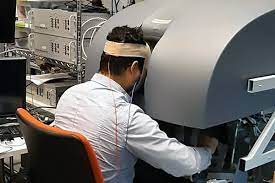
Breaking News
 Why Doug Band's Upcoming Testimony to House Oversight on the Epstein Investigation...
Why Doug Band's Upcoming Testimony to House Oversight on the Epstein Investigation...
 Iran War Day Four: Shifting US Narratives As Skepticism Grows
Iran War Day Four: Shifting US Narratives As Skepticism Grows
 Age Verification Mandates: The 'Protect the Kids' Scam That's Building a Permanent Surve
Age Verification Mandates: The 'Protect the Kids' Scam That's Building a Permanent Surve
Top Tech News
 US particle accelerators turn nuclear waste into electricity, cut radioactive life by 99.7%
US particle accelerators turn nuclear waste into electricity, cut radioactive life by 99.7%
 Blast Them: A Rutgers Scientist Uses Lasers to Kill Weeds
Blast Them: A Rutgers Scientist Uses Lasers to Kill Weeds
 H100 GPUs that cost $40,000 new are now selling for around $6,000 on eBay, an 85% drop.
H100 GPUs that cost $40,000 new are now selling for around $6,000 on eBay, an 85% drop.
 We finally know exactly why spider silk is stronger than steel.
We finally know exactly why spider silk is stronger than steel.
 She ran out of options at 12. Then her own cells came back to save her.
She ran out of options at 12. Then her own cells came back to save her.
 A cardiovascular revolution is silently unfolding in cardiac intervention labs.
A cardiovascular revolution is silently unfolding in cardiac intervention labs.
 DARPA chooses two to develop insect-size robots for complex jobs like disaster relief...
DARPA chooses two to develop insect-size robots for complex jobs like disaster relief...
 Multimaterial 3D printer builds fully functional electric motor from scratch in hours
Multimaterial 3D printer builds fully functional electric motor from scratch in hours
 WindRunner: The largest cargo aircraft ever to be built, capable of carrying six Chinooks
WindRunner: The largest cargo aircraft ever to be built, capable of carrying six Chinooks
Head zaps help surgeons transfer skills from VR to IRL

In addition to training better future surgeons, the approach could help skill acquisition in other industries.
Motor learning allows us to develop new skills, like mastering a tennis serve or, in the case of a surgeon, developing precision suturing skills. These days, surgeons are likely to learn these types of skills in a virtual reality (VR) environment before they transition to the real world.
Researchers at Johns Hopkins University in the US have developed a method of improving how medicos learn surgical skills in a virtual environment so that their learned skills are transferred more effectively to a real-life scenario.

 Geniuses on Education
Geniuses on Education
 RNA Crop Spray: Should We Be Worried?
RNA Crop Spray: Should We Be Worried?

